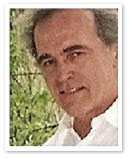CONCURRENT SESSIONS
Friday, June 14th, 2013 - 4:00 pm – 5:30 pm
BARIATRIC MEDICINE (ACCEPTED PAPERS)
Chair: Dr. Maria Tiboni
Territories Room
4:00 pm
The diet resistant phenotype and its predictive value in choice of weight treatment strategies – Medical perspective
 |
Dr. Robert Dent, MD, FRCPCDr. Robert Dent is a specialist in Internal Medicine with academic appointments in Endocrinology and surgery at the University of Ottawa. In 1992 he established the Weight Management Clinic at the Ottawa Hospital and the University of Ottawa. This is a multidisciplinary clinic designed with these objectives: patient care, teaching health care professionals and research in the genotype phenotype associations of obesity. This clinic design has been adopted in several Canadian university centres. With respect to research, he has 35 publications in peer-reviewed journals in the last seven years. These publications deal with the design and outcomes of the clinic; and the genetics of obesity. Since 2011, he and Dr. Ruth McPherson hold a CIHR grant entitled Metabolic and Genetic determinants of Obesity and Obesity-related Phenotypes. During the years 2005 to 2007, he was a member of the Expert Committee for the Canadian Clinical Practice Guidelines on the management and Prevention of Obesity and contributed two chapters to that work which were published and contributed two chapters to that work which were published in the Canadian Medical Association Journal in 2007. Other memberships include: The Canadian Obesity Network (founding Membership), Bariatric Surgery panel to develop the Health Technology Utilization guidelines of Ontario, November 2005, Chairman for the working group on obesity for the Champlain Primary Care CVD Prevention Guidelines both in September 2006 and for the 2012 edition of the Ontario Bariatric Network. Since 2009, he has worked with the Ministry of Health of Ontario as Chairman. The Ontario Bariatric Network Patient Assessment Working Group. The objectives of this committee were to develop criteria to identify appropriate candidates for bariatric surgery including those outside the usual BMI and age ranges; to develop a structured assessment process to allow fair and equitable access to obese patients requiring bariatric surgery. His primary interests include, obesity treatment, psychosocial aspects of obesity, patient advocacy, and the genotype-phenotype associations of obesity. |